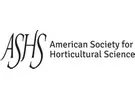During the 2020 Annual Conference of the American Society for Horticultural Science, the Consumer Horticulture and Master Gardener Professional Interest Group hosted the workshop, “Crucial Issues in Consumer Horticulture”. The workshop discussed the results of surveys of two groups — consumer horticulture (CH)/extension researchers and public gardens staff. The surveys were designed to provide a better understanding of the shortfalls in current CH research and information on the extent of public gardens' role in CH.
In a recently published article in the American Society for Horticultural Science journal HortTechnology, two specific presentations of survey results are discussed in detail — the research gaps in CH and bridging the divide between CH and public gardens.
As defined by the National Initiative for Consumer Horticulture (NICH), “Consumer horticulture is the cultivation, use and enjoyment of plants, gardens, landscapes and related horticultural items to the benefit of individuals, communities and the environment.” CH is a broad discipline that provides support to people from every demographic of the U.S. population.
According to NICH, “CH-related activities rely on the understanding and application of the art and science of horticulture.” Industries that support these activities include everything from independent garden centers and florists to wholesale growers. Consumers seek out education from a broad variety of sources such as garden clubs, social media, and agriculture extension agents.
Findings from the gaps in CH research survey given to the CH/extension researchers show a disconnect in participants’ perceptions of the roles of CH in the economy and recreation, even though there was a general understanding of consumer horticulture. The greatest knowledge gap was in basic horticultural practices such as planting, pruning, and soil preparation. Results from the first survey also indicated a clear gap in CH research because of a lack of funding and understanding of the importance of CH by both researchers and educators.
The retail gardening industry in the United States is expected to reach $50 billion by 2023, and it is a significant driver of the agricultural economy. To meet the corresponding demand for information, the authors suggest that CH professionals will need to develop innovative digital outreach, research-based solutions, a concerted recruitment of youth, and enhanced collaborations.
Public gardens across the United States give consumers a place for socializing, mentally relaxing, learning more about the nature in their communities, and increasing their gardening knowledge and skill.
The results of the public garden survey point to a need for a concerted effort to educate public garden professionals about CH and its importance. Public garden professionals are in a unique position to pass on their knowledge to the general public since they are involved in numerous plant societies and actively collaborate with their local green industry.
The authors plan to present these results to the National Initiative for Consumer Horticulture executive committee, and leaders in academia and public garden management. The ultimate goal is to provide consumers with a uniform messaging and to close the knowledge gap in basic horticultural practices.
The complete article is available on the ASHS HortTechnology electronic journal web site: https://doi.org/10.21273/HORTTECH04934-21

 American Society for Horticultural Science (ASHS)
American Society for Horticultural Science (ASHS)